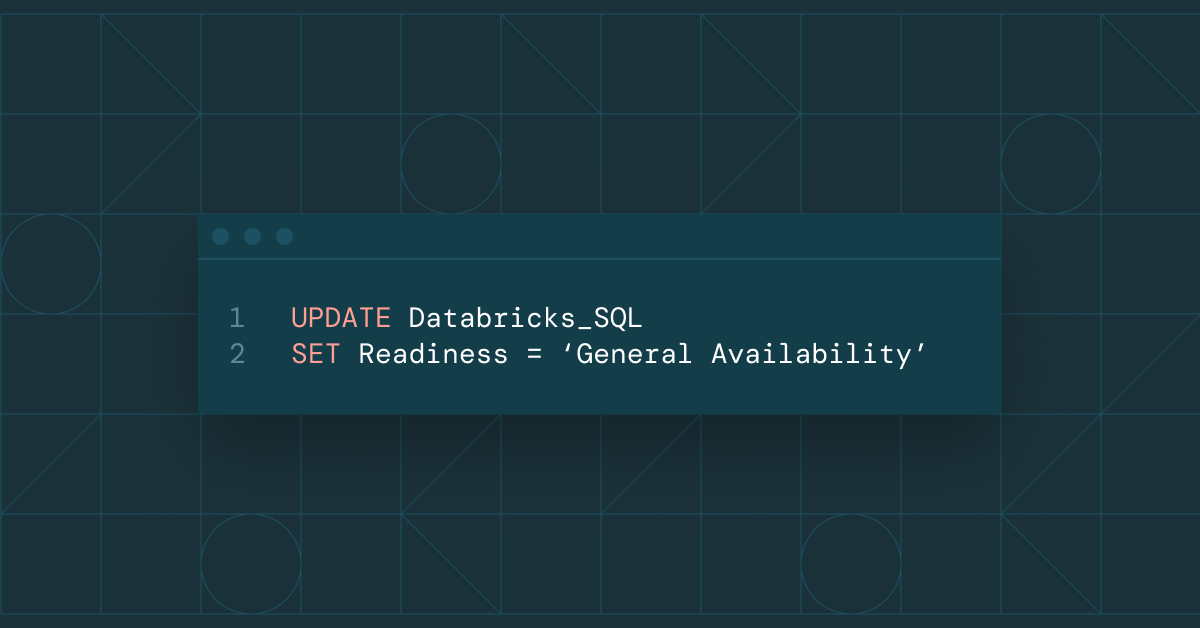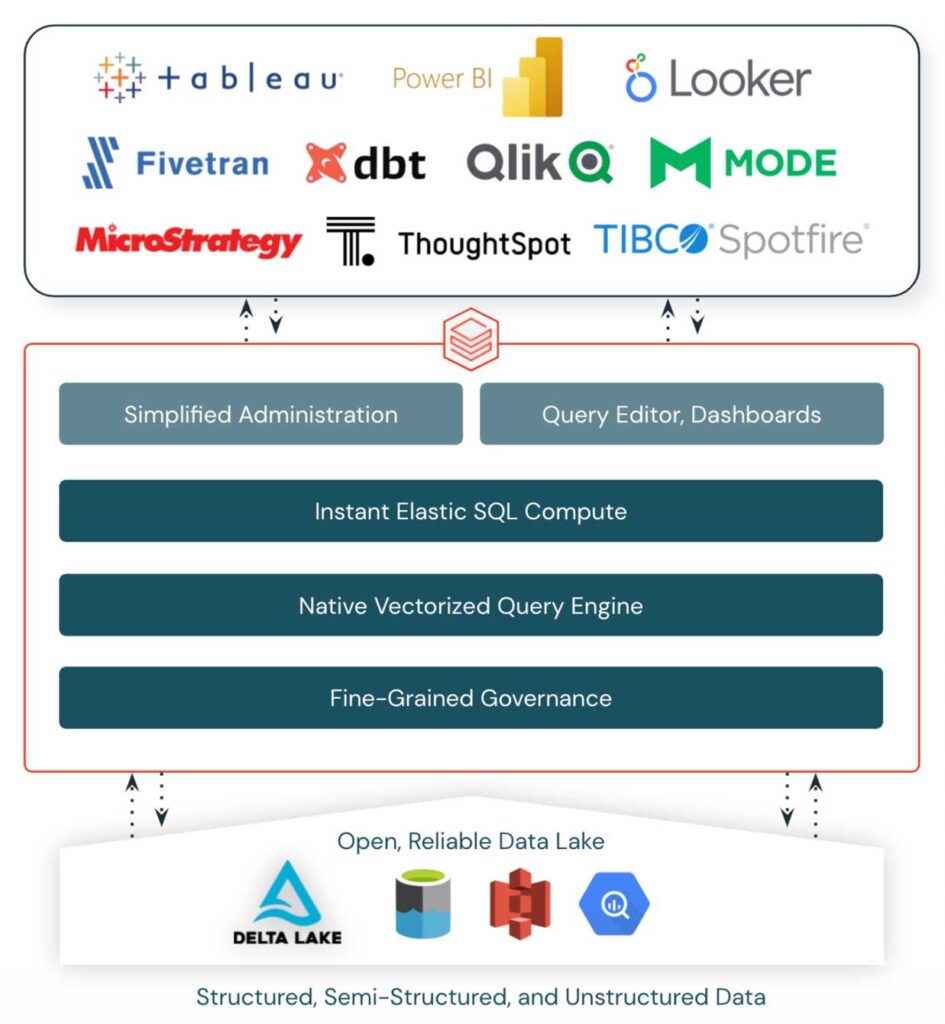Announcing General Availability of Databricks SQL

Today, we are thrilled to announce that Databricks SQL is Generally Available (GA)! This follows our earlier announcements about Databricks SQL’s world record-setting performance for data warehousing workloads, and adoption of standard ANSI SQL. With GA, you can expect the highest level of stability, support and enterprise-readiness from Databricks for mission-critical workloads on the Databricks Lakehouse Platform. In this blog post, we explore how Databricks SQL is powering a new generation of analytics and data applications, running directly on the data lake, at the world’s leading companies.
Customers win with the open lakehouse
Historically, data teams had to resort to a bifurcated architecture to run traditional BI and analytics workloads, copying subsets of the data already stored in their data lake to a legacy data warehouse. Unfortunately, this led to the lock-in, high costs and complex governance inherent in proprietary architectures.
Our customers asked us to simplify their data architecture. We introduced Databricks SQL to provide data warehousing capabilities and first class support for SQL on the Databricks Lakehouse Platform. Using open standards, Databricks SQL provides up to 12x better price/performance for data warehousing and analytics workloads on existing data lakes. And it works seamlessly with popular tools like Tableau, PowerBI, Looker, and dbt without sacrificing concurrency, latency and scale, all the while maintaining a single source of truth for your data.
Databricks SQL is already powering production use cases at leading companies around the globe. From startups to enterprises, over 1,000 companies are using Databricks SQL to power the next generation of self-served analytics and data applications:
- Atlassian is building on the Lakehouse Platform one of the most ambitious data applications on the planet, providing nearly 190K external users with the ability to generate insights and analytics on the freshest data. Databricks SQL is also enabling data democratization internally across over 3K users, and more BI workloads are moving to Databricks SQL with PowerBI.
- Punchh has accelerated ETL pipelines, democratized data and analytics, and improved BI and reporting—increasing customer retention and loyalty. Databricks SQL allows Punchh’s data team to query their data directly within Databricks and then share insights through rich visualizations and fast reporting via Tableau.
- SEGA Europe has moved away from a costly data warehouse-centric architecture to the Databricks Lakehouse Platform. And in doing so, successfully unified massive amounts of structured and unstructured data. This enables their data teams to derive insights needed to deliver personalized experiences to 30 million gamers across the globe. SEGA Europe’s existing BI tools, Tableau and PowerBI, work seamlessly with Databricks SQL.
Gartner®: Databricks Cloud Database Leader
Powering modern analytics on the lakehouse
Databricks SQL offers all the capabilities you need to run data warehousing and analytics workloads on the Databricks Lakehouse Platform:
- Instant, elastic SQL-optimized compute for low-latency, high-concurrency queries that are typical in analytics workloads. Compute is separated from storage so you can scale with confidence.
- Integration with your existing tools such as Tableau, PowerBI, dbt and Fivetran, so you can get value from your data without having to learn new solutions.
- Simplified administration and data governance, so you can quickly and confidently enable self-serve analytics.
- A first-class, built-in analytics experience with a SQL query editor, visualizations and interactive dashboards. Analysts can go from zero-to-aha! in moments.
We can’t wait to see what you build
Watch the demo below to discover the ease of use of Databricks SQL for analysts and administrators alike:
If you already are a Databricks customer, follow the guide to get started (AWS | Azure). Read the release notes to learn more about what's included in this GA release. If you are not an existing Databricks customer, sign up for a free trial with a Premium or Enterprise workspace.
Watch Delivering Analytics on the Lakehouse with Reynold Xin to learn more, and don’t miss our free virtual training on January 13, 2022 to dive in!
Never miss a Databricks post
What's next?

Data Warehousing
July 24, 2024/7 min read
Primary Key and Foreign Key constraints are GA and now enable faster queries

Product
September 12, 2024/7 min read

